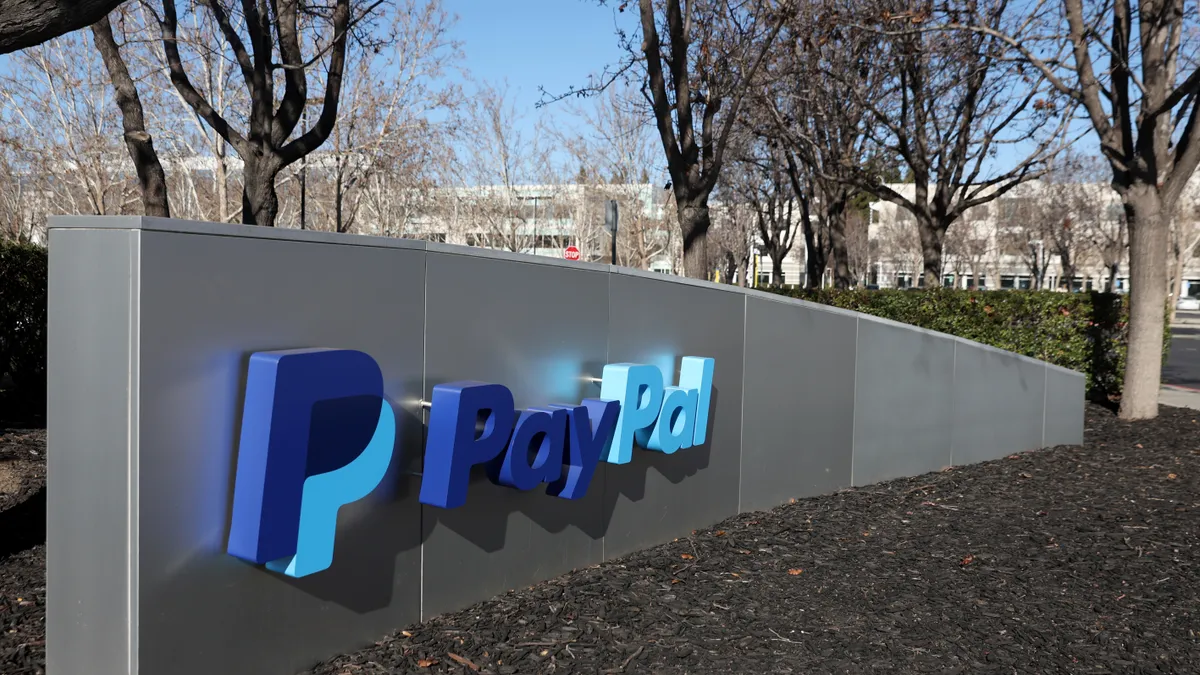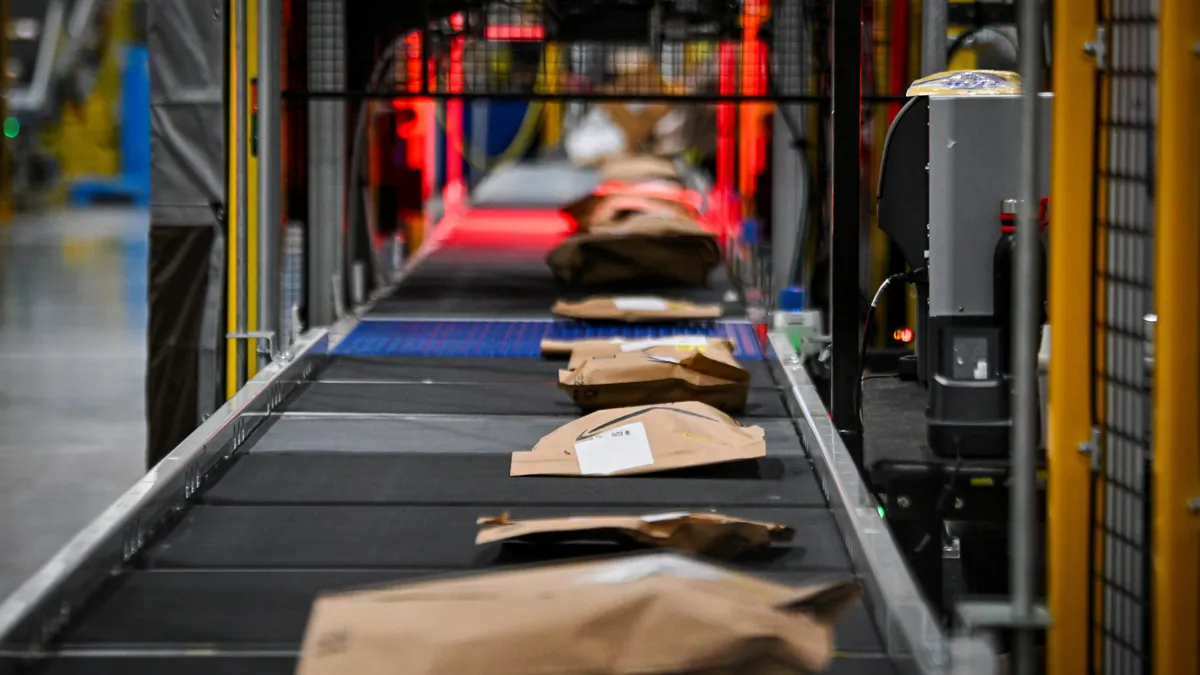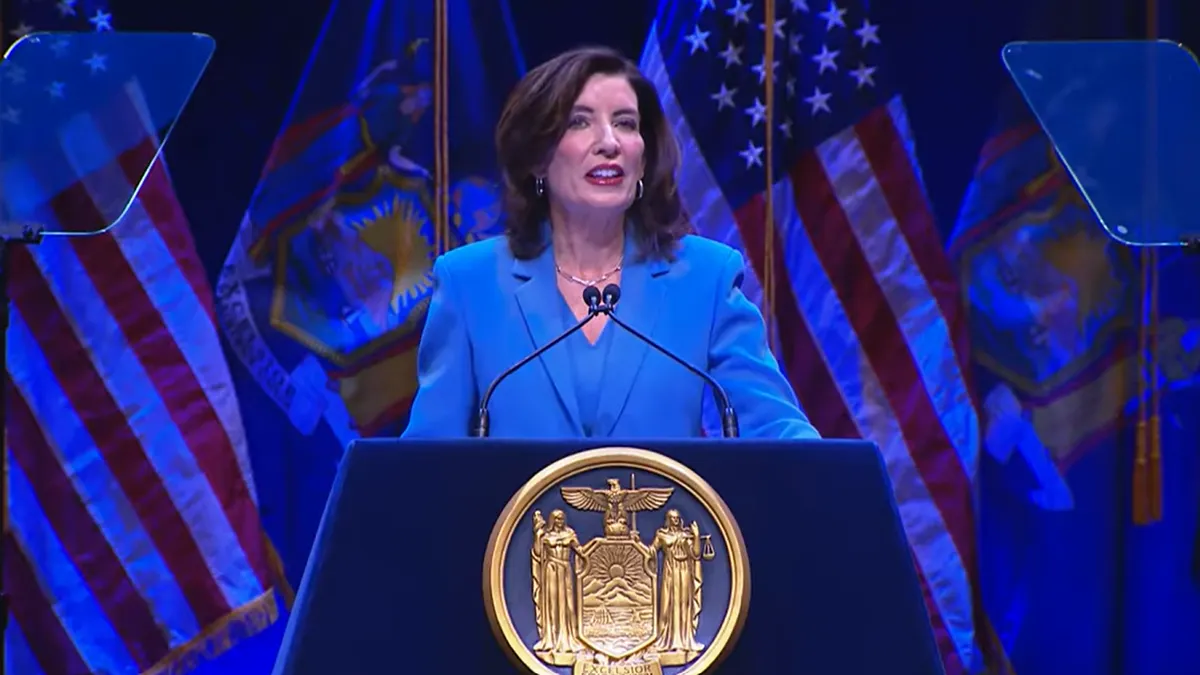The American Fintech Council is nudging Rep. Bryan Steil, a Republican from Wisconsin, to reintroduce legislation that would provide federal regulation of the expanding earned wage access industry.
The bill would give dozens of companies in the industry, including DailyPay, Payactiv and EarnIn, a national framework for oversight of their services. While the industry has guided about a dozen states to enact laws governing the industry, EWA players would rather have a nationwide approach.
“We prefer regulatory clarity from the federal government, as opposed to a state patchwork regulatory structure,” AFC Chief Executive Phil Goldfeder said in an interview last week.
Earned wage access services allow workers to tap their earned wages before regularly scheduled paydays. Dozens of EWA providers have cropped up to offer the services, making money by charging the workers fees or receiving interchange fees from merchants if the paycheck is put on a debit card. Some of the services are offered through employers, but others are direct to consumers who may allow a provider to debit their bank accounts.
The EWA services have become particularly popular among hourly workers, such as Uber drivers and Walmart retail employees, though some consumer advocates worry that employees are paying excessive fees for the payouts.
An important aspect of Steil’s bill, introduced in February of last year, was that it didn’t define EWA disbursements as loans. That meant it wouldn’t subject EWA financing to lending laws. That bill also said that any fees or gratuities that workers were charged to use the services wouldn’t be considered finance charges.
Still, some states are concerned about the fees. In April, the New York attorney general sued two EWA providers, DailyPay and MoneyLion, over what that office called “expensive payday loans.” Some consumers are lodging their own complaints as well, with one federal civil lawsuit in Maryland prompting a court ruling this month that suggested the services should be subject to lending laws.
The Consumer Financial Protection Bureau last year under the Biden administration issued an interpretive rule that would have applied lending laws to EWA, but that oversight has fallen away as the Trump administration has undercut the agency’s staffing and mission.
Steil’s bill last year attracted six Republican cosponsors and was the subject of a committee hearing, but expired at the end of the legislative session.
Goldfeder is “optimistic” a bill might cross the finish line in this congressional session, which started a two-year term this year. “We've been coordinating the team with [Steil’s] office, and we're optimistic that they'll be introducing that bill again,” Goldfeder said. “Additionally, we've already been in talks with many Democratic offices as well as potential cosponsors.”
A spokesperson for Steil’s office didn’t respond to a request for comment. As chairman of the House Financial Services subcommittee on Digital Assets, Financial Technology, and Artificial Intelligence, Steil is in a position to carry such a bill.
The Financial Technology Association, which includes EWA members, also would be supportive of such a bill, and previously supported Steil’s legislation. “We support legislative efforts to establish a durable federal regulatory framework for EWA and appropriately define it as a non-credit product,” a spokesperson said by email.
Steil contends that employees need and deserve access to EWA services. “Earned Wage Access enables American workers to access the benefits of their hard work on the timeframe that best meets their needs,” he said in a press release when he introduced the bill. “My bill will ensure workers across the country can continue to use these services, which help them to better connect work to reward.”
The bill, dubbed the Earned Wage Access Consumer Protection Act, didn’t include the strong lending law restrictions that some consumer advocates contend are needed to truly protect workers.
Organizations like the National Consumer Law Center and the Center for Responsible Lending have pressed national and state policymakers to restrict EWA service charges.
“Workers shouldn’t have to pay to be paid, and these so-called earned wage advances are just payday loans in disguise,” the NCLC said in a January press release when the CFPB began to backtrack on its prior guidance.






















